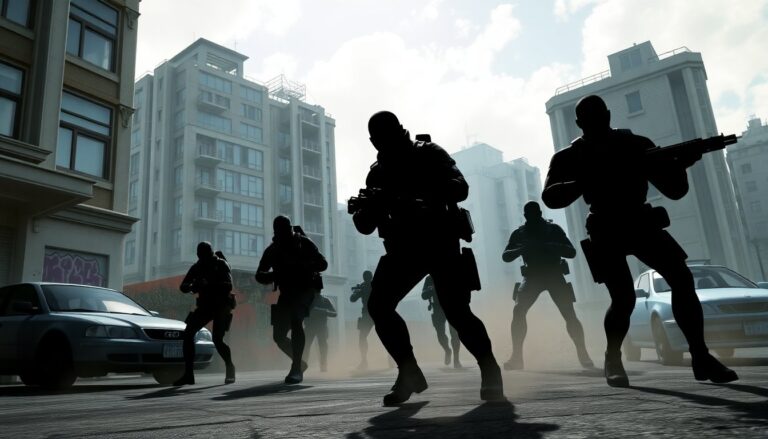Argomenti trattati
In the fast-paced realm of video games, projects can undergo significant transformations, often dictated by market trends and corporate strategies. A prime example of this phenomenon is XDefiant, a multiplayer shooter that was born out of the ashes of what was initially envisioned as a new entry in the Splinter Cell series. This article delves into the journey of XDefiant, tracing its roots back to the creative minds behind it and the shifting priorities of its developer, Ubisoft.
The rise and fall of XDefiant
Launched in 2025, XDefiant garnered a fair amount of attention and positive reviews, with many players considering it a refreshing change in a gaming landscape often dominated by franchises like Call of Duty. However, despite its promising start, the game faced a rapid decline in player engagement, leading to its shutdown within a year. This trajectory raises questions about what could have been if the original vision had been fully realized.
The initial vision for Splinter Cell
Before XDefiant came to be, a group of passionate developers, including Nick Herman, Dennis Lenart, and Pierre Shorette, were enthusiastic about reviving the Splinter Cell franchise. Having previously made a name for themselves at Telltale Games with titles like Tales from the Borderlands, they joined Ubisoft in 2017 with high hopes of creating a narrative-driven experience that fans of the series would cherish. Herman expressed his excitement, stating, “I was so thrilled to be a part of this and help revitalize it, as it had been dormant for quite some time.”
However, as the project progressed, it became apparent that the corporate landscape at Ubisoft was shifting. The company began focusing heavily on the live-service games model, prioritizing multiplayer experiences over the single-player narratives that had defined franchises like Splinter Cell. This shift prompted the developers to adapt their project, attempting to merge their storytelling aspirations with the demands of a service-oriented game.
The transformation into XDefiant
As discussions around the new Splinter Cell game progressed, it became clear that Ubisoft’s vision diverged from that of the creative team. The initial excitement began to wane as the developers struggled to align their narrative goals with the new direction imposed by the company. Herman noted that while they attempted to create a compelling narrative within the framework of a Games as a Service (GAAS) model, many of their ideas were ultimately sidelined. “We tried to make it work, but you come to realize that the things you are passionate about aren’t a priority for others,” he reflected.
The aftermath of XDefiant’s launch
XDefiant, which eventually emerged as a free-to-play first-person shooter, launched to mixed reviews and a lukewarm reception from players. The game, while visually appealing and boasting solid mechanics, was unable to capture the hearts of fans in the same way its predecessor might have. It became evident that Ubisoft’s preoccupation with replicating the success of franchises like Call of Duty had overshadowed the potential of the original Splinter Cell vision.
In, the decision was made to shut down XDefiant, resulting in layoffs and disappointment among both players and developers. This abrupt end served as a stark reminder of the volatile nature of the gaming industry, where even the most promising projects can falter.
Future prospects for Splinter Cell
Despite the disappointment surrounding XDefiant, there is a glimmer of hope for fans of the Splinter Cell series. Ubisoft has hinted at a possible remake of the original game, although details remain scarce. The recent anime adaptation of Splinter Cell has also rekindled interest in the franchise, suggesting that there may be a renewed focus on bringing the beloved series back to life.
Overall, while the journey from Splinter Cell to XDefiant was fraught with challenges, it highlights the complexities of game development and the impact of corporate strategies on creative vision. As the gaming landscape continues to evolve, the desire for rich narratives remains strong among players, leaving the door open for the eventual resurgence of the Splinter Cell franchise.

